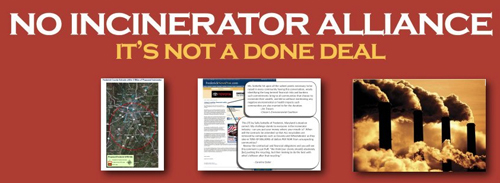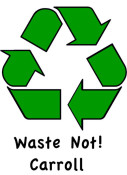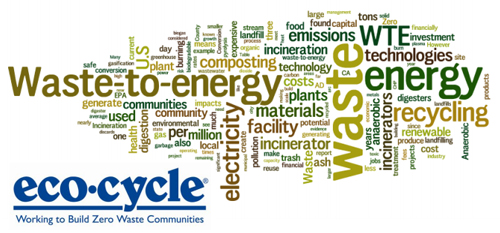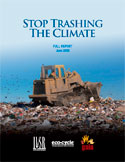For a number of years, and a number of reasons, Frederick County has been embroiled in an ongoing controversy about the funding and construction of a regional 1,500 tons per day, mass burn incinerator, to be located on the banks of the Monocacy River, overlooking the Monocacy National Battlefield, only three miles from the heart of downtown Frederick. Although the extremely controversial project was approved by the previous Board of County Commissioners, and has continued to receive unwavering support from the current board, it remains an unsettled and uncertain issue. Because if its importance, it is one of the first public policy areas that we will be addressing here.
In the meantime, here are a few related resources:
No-Incinerator Alliance
 The No Incinerator Alliance is a grassroots coalition working to stop new trash incinerators from being built in or near Frederick County, Maryland. The alliance of individuals and environmental groups working with residents, businesses and local governments to move toward Zero Waste concepts and practices. Such practices save natural resources, conserve landfill space and eliminate costly and polluting incinerators by reducing waste generation and reusing, recycling and composting discarded materials.
The No Incinerator Alliance is a grassroots coalition working to stop new trash incinerators from being built in or near Frederick County, Maryland. The alliance of individuals and environmental groups working with residents, businesses and local governments to move toward Zero Waste concepts and practices. Such practices save natural resources, conserve landfill space and eliminate costly and polluting incinerators by reducing waste generation and reusing, recycling and composting discarded materials.
Waste Not! Carroll
 The mission of Waste Not! Carroll is to educate the citizens of Carroll County about the local efforts to reduce waste, save precious resources and ease the burden on our landfills. By working with businesses, citizens and government leaders, Waste Not! Carroll hopes to build on the county’s early efforts to develop sensible and sustainable alternatives to managing its solid waste.
The mission of Waste Not! Carroll is to educate the citizens of Carroll County about the local efforts to reduce waste, save precious resources and ease the burden on our landfills. By working with businesses, citizens and government leaders, Waste Not! Carroll hopes to build on the county’s early efforts to develop sensible and sustainable alternatives to managing its solid waste.
Waste Not! Carroll encourages public/private partnerships to realize effective resource recovery within Zero Waste concepts and practices, emphasizing reduction, reuse, recycling, and composting.
The Zero Waste philosophy is based on the realities that landfill space is limited, organic decay in landfills releases methane that contributes to the warming of the earth’s atmosphere, and that incineration not only poses health hazards but is a costly financial option. Implementing Zero Waste will eliminate all discharges to land, water or air that may be a threat to our communities and our natural resources.
You can also find Waste Not! Carroll on Facebook
The Frederick County / Carroll County WTE/incinerator controversy in the media
Open a chronological listing of news articles, editorials, columns and letters to the editor from the News Post, Gazette, Carroll County Times and other local and regional news sources about the 1,500 tons per day, regional mass burn incinerator that has been proposed and approved for the bank of the Monocacy River, looming over the Monocacy Battlefield National Park, and less than three miles from downtime Frederick.
Please note this from the News Archive home page:
Envision Frederick County is compiling an archive of news articles, editorials, columns and letters to the editor, from a range of local and regional publications. The archive will grow to include well more than 1,000 entries, covering the last decade or so.
In other words, while the link above will take you to a few dozen “news articles, editorials, columns and letters to the editor” about this issue, we are working to catch up with the past, and there will be MANY more links available, soon, to the local coverage and history of this long-running, controversial and highly contested issue.
WASTE-OF-ENERGY: Why Incineration is Bad for our Economy, Environment and Community

Eco-Cycle is one of the largest non-profit recyclers in the USA and has an international reputation as a pioneer and innovator in resource conservation. Eco-Cycle’s mission is to identify, explore and demonstrate the emerging frontiers of sustainable resource management through the concepts and practices of Zero Waste. Eco-Cycle believes in individual and community action to transform society’s throw-away ethic into environmentally-responsible stewardship.
Eco-Cycle’s website is a treasure trove of great information and resources about waste management, recycling, composting, incineration and more. The emphasis here, however, is on the outstanding 2011 report, WASTE-OF-ENERGY: Why Incineration is Bad for our Economy, Environment and Community, which analyzes the three primary technologies commonly known as “waste-to-energy” (incineration, conversion technologies like pyrolysis and gasification, and anaerobic digestion) and examines the economic, environmental and social impacts of waste-to-energy.
Stop Trashing the Climate
 Stop Trashing the Climate is a 2008 report that provides compelling evidence that preventing waste and expanding reuse, recycling, and composting programs — that is, aiming for zero waste — is one of the fastest, cheapest, and most effective strategies available for combating climate change. This report documents the link between climate change and unsustainable patterns of consumption and wasting, dispels myths about the climate benefits of landfill gas recovery and waste incineration, outlines policies needed to effect change, and offers a roadmap for how to significantly reduce greenhouse gas (GHG) emissions within a short period.
Stop Trashing the Climate is a 2008 report that provides compelling evidence that preventing waste and expanding reuse, recycling, and composting programs — that is, aiming for zero waste — is one of the fastest, cheapest, and most effective strategies available for combating climate change. This report documents the link between climate change and unsustainable patterns of consumption and wasting, dispels myths about the climate benefits of landfill gas recovery and waste incineration, outlines policies needed to effect change, and offers a roadmap for how to significantly reduce greenhouse gas (GHG) emissions within a short period.